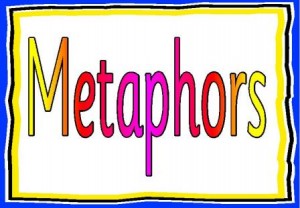From Luke’s Gospel:
Jesus said, “Beware of the yeast of the Pharisees, that is, their hypocrisy.”
(From the Daily Office Lectionary – Luke 12:1 (NRSV) – October 30, 2014)
 I often wonder what (if any) thought went into the construction of various lectionaries, particularly the Daily Office lectionary of the Episcopal Church. Are the sometimes strange, sometimes enlightening, often puzzling juxtapositions of texts planned or simply fortuitous?
I often wonder what (if any) thought went into the construction of various lectionaries, particularly the Daily Office lectionary of the Episcopal Church. Are the sometimes strange, sometimes enlightening, often puzzling juxtapositions of texts planned or simply fortuitous?
Today Jesus uses yeast as a metaphor for what he considers to be the corrupt teachings of the Pharisees. Meanwhile, over in the Old Testament department (actually the Apocrypha department these past several days) we have a note from Ben Sira about wine; although he admonishes his reader not to get intoxicated and quarrelsome, he praises wine in moderation saying:
Wine is very life to human beings
if taken in moderation.
What is life to one who is without wine?
It has been created to make people happy.
Wine drunk at the proper time and in moderation
is rejoicing of heart and gladness of soul.
(Sirach 31:27-18)
Yeast, of course, is necessary for the creation of this good wine. In fact, wine makers are often very protective of their particular yeast strains. (Once when I was in college, my roommates and I decided to brew some beer. One of my roommates had a friend who worked for a very famous maker of California champagne – yes, I know, it’s just sparkling wine if not made in France – and was able to obtain – illegally, I admit – a quantity their proprietary champagne yeast. We thought that we’d be super-cool making beer with champagne yeast, that our beer would be magnificent; we weren’t and it wasn’t. But I did learn about proprietary wine yeast.)
So the metaphor of yeast is, like all metaphors, an ambiguous one, as is the metaphor of wine which is also used as a symbol of teaching in the Bible (consider Jesus’ parable of new wine and old wineskins). While Jesus uses yeast here to represent to corrupt teachings of the Pharisees, and Paul will later use it as a symbol of sin and malice (I Cor 5:7-8), Jesus also uses leaven as parabolic of the kingdom of heaven (Mt 13:33; Lk 13:21). Metaphorical ambiguity is the name of the game!
And as a game is how metaphors should be approached. I tell my Education for Ministry students to play with metaphors. Look around the room, pick an object (just on my desk this morning there are a pair of eyeglasses, a stapler, a coffee mug, and a concert ticket, for example). Now say, “The kingdom of God is like [that object]” or “Beware the [object] of the Pharisees,” and begin to explore what that might mean: “The kingdom of God is like a concert ticket” – “Beware the eyeglasses of the Pharisees.” Play with that.
Whoever put together the Daily Office lectionary probably had no intention to link “bad” yeast with “good” wine, but using our theological imagination to play with the metaphors, we can do so. I think we should: we should explore and have fun with biblical metaphors and, in the process, learn something.
====================
A request to my readers: I’m trying to build the readership of this blog and I’d very much appreciate your help in doing so. If you find something here that is of value, please share it with others. If you are on Facebook, “like” the posts on your page so others can see them. If you are following me on Twitter, please “retweet” the notices of these meditations. If you have a blog of your own, please include mine in your links (a favor I will gladly reciprocate). Many thanks!
====================
Father Funston is the rector of St. Paul’s Episcopal Church, Medina, Ohio.



Leave a Reply